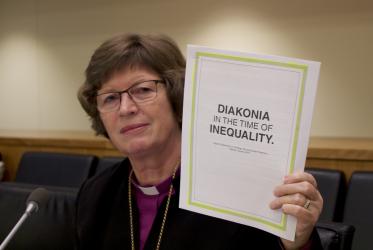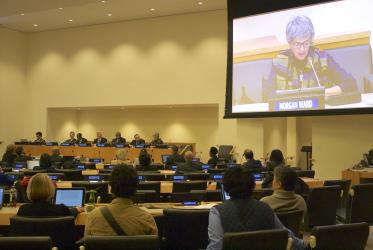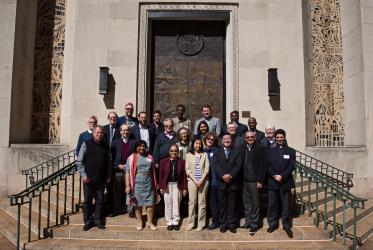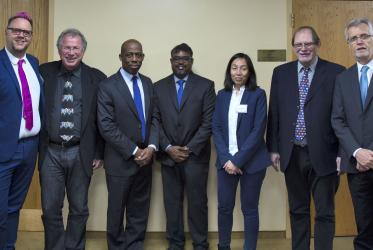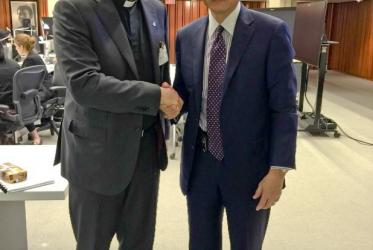Displaying 1 - 20 of 23
25 April 2024
Churches march in New York City to declare no faith in fossil fuels
18 September 2023
WCC supports Zacchaeus campaign for tax justice
12 July 2019
Sustainable resourcing for sustainable development
05 February 2019
Panel addresses economic and climate injustice
24 April 2018
New economic architecture focus of New York meeting
22 April 2018
G20 summit: call to pray for peace in Hamburg
07 July 2017
“Overcoming economic injustice” vision of WCC’s Athena Peralta
23 February 2017
GEM school ends with hope for a better tomorrow
08 September 2016
A just financial and economic architecture is possible, students find
08 September 2016
World Social Forum sows seed of hope in global north
17 August 2016
Land rights focus of panel discussion
17 November 2015






